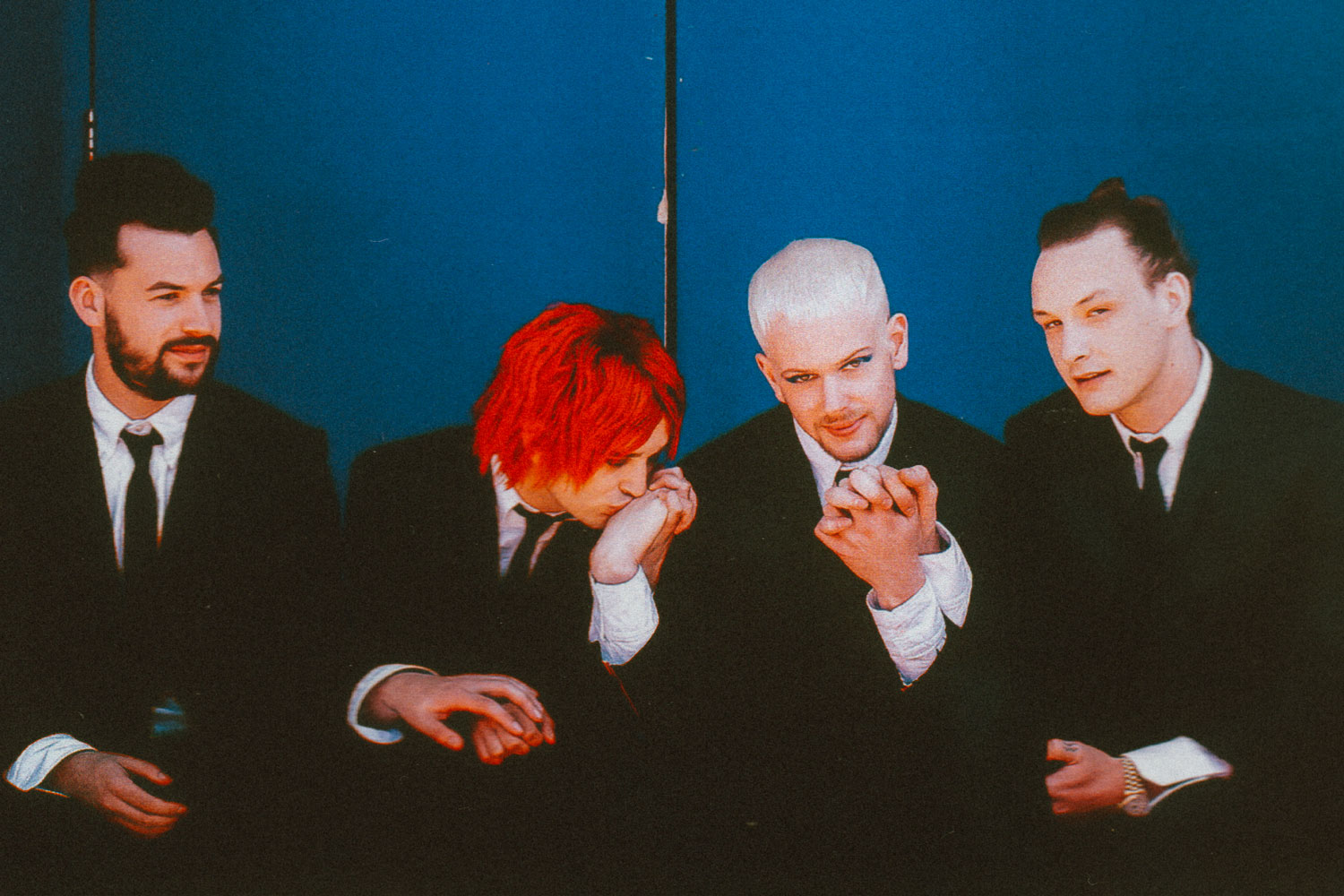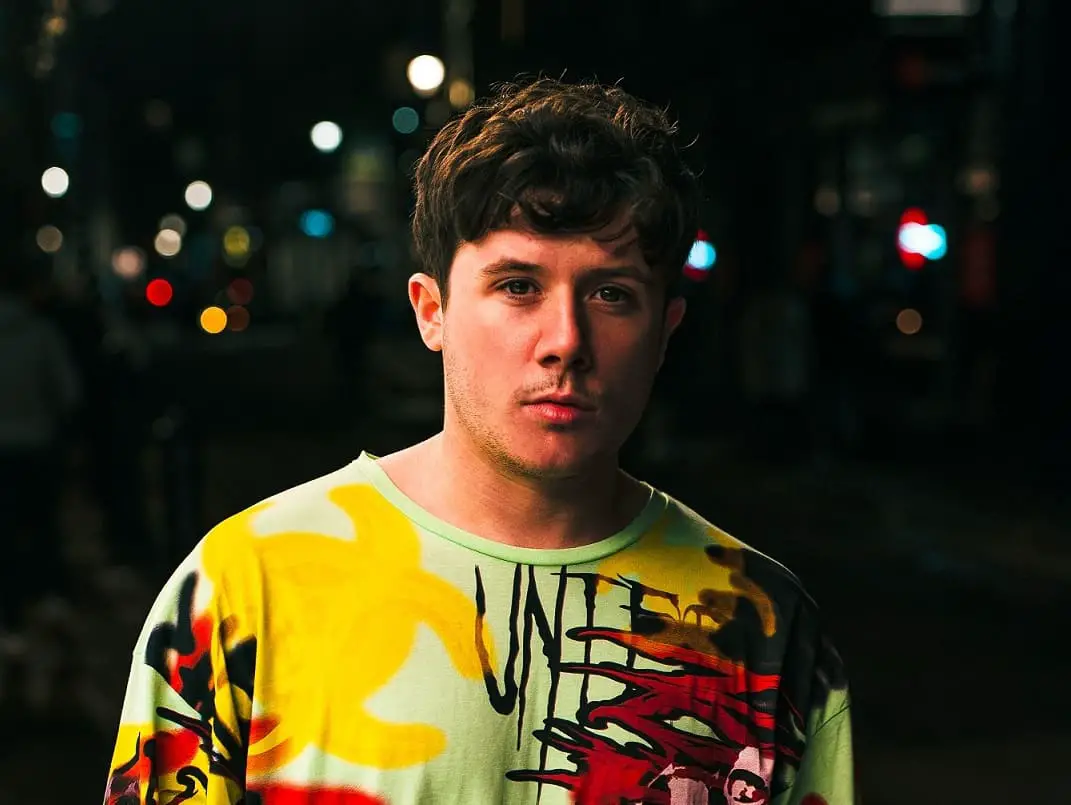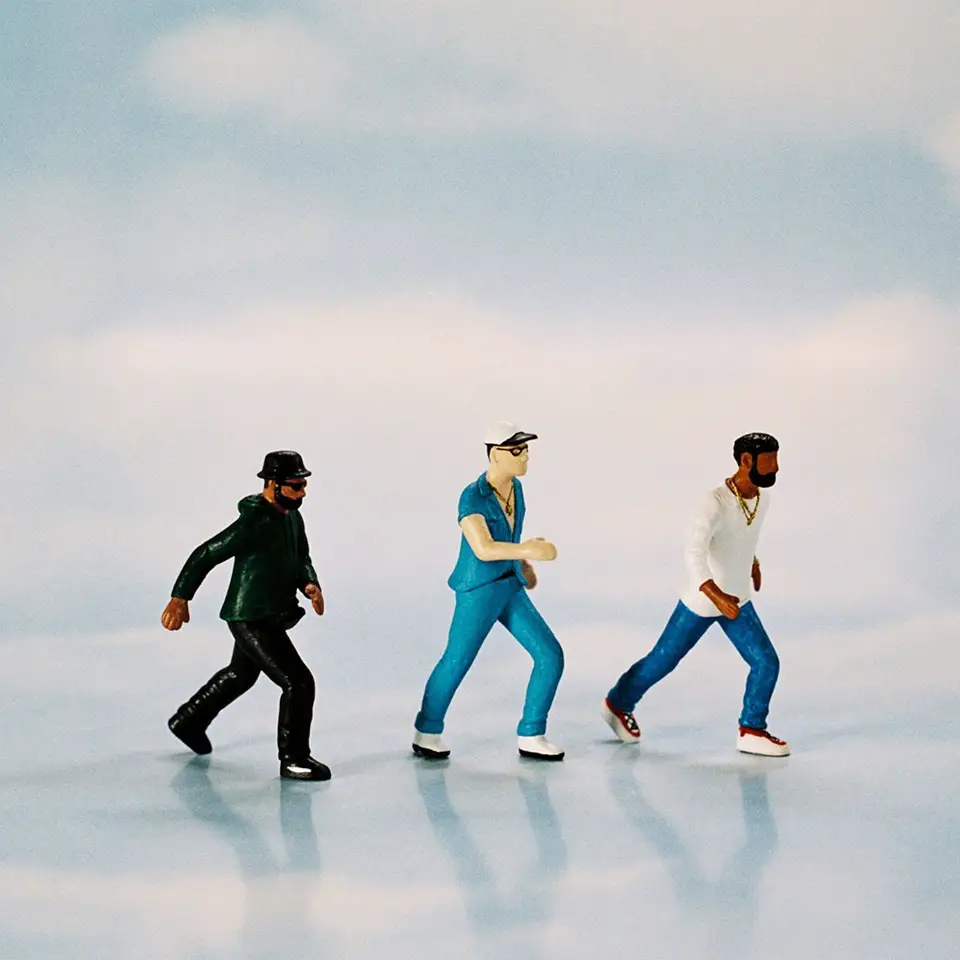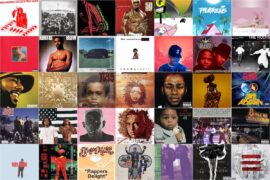Australian indie rock singer/songwriter Angie McMahon dives into the raw, soul-stirring depths of her cinematic sophomore album ‘Light, Dark, Light Again,’ a breathtaking and beautifully vulnerable journey of inner reckoning and redemption, catharsis and self-compassion.
‘Light, Dark, Light Again’ – Angie McMahon
I have been embracing the idea that all life’s chapters of death and rebirth, the plunging downhill and the climb back uphill, they’re inevitable and temporary and crucial to growth. I want to accept it all, so this record is meant to be a reminder of that.
Angie McMahon can always be counted on to bring us face-to-face and heart-to-heart with our innermost selves. Ever since we first met her in 2018, the Australian indie rock singer/songwriter has effortlessly soundtracked the tender turmoil of our restless souls.
And with it being four years since her last full length release, we were well overdue for a proper McMahon musical cleanse.
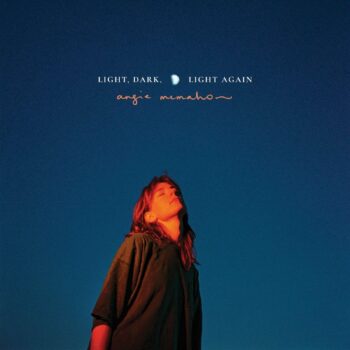
I planted my feet
And my hands werе reaching back for you
Now everywhеre I step into
I’m thinking about you fondly…
This morning
I didn’t want to get out of the shower but hot water runs out
And you have to carry on, don’t you?
Close and move along, don’t you?
Just like letting go of you
I can’t believe I’m letting go of you
– “Fireball Whiskey,” Angie McMahon
Released October 27 via AWAL, Angie McMahon’s long-awaited sophomore album is everything fans could have hoped it would be: Emotionally charged, sonically breathtaking, achingly human, and beautifully vulnerable. Aptly titled Light, Dark, Light Again, the thirteen-track follow-up to 2019’s Salt brings listeners on a powerfully cathartic, soul-stirring journey of reckoning and redemption as McMahon delves into her own darkness and finds her way back out again.
The adventure from opening songs “Saturn Returning” and “Fireball Whiskey” to “Music’s Coming In” and the visceral finale “Making It Through” is one of emotional growth transformation: The artist looks inward, examining her relationship with herself, not only to better understand who she is, but also to ultimately accept herself as she is. Out of the turmoil comes a stunning sense of self-love, liberation, and empowerment.

“This is the space where everything is allowed to fall apart,” McMahon says. “Mother nature and her rhythms have been teaching me acceptance, that everything comes up to go down again.”
“This record came out of the lowest rock bottom I’ve ever hit,” she explains. “Some of the pillars that were holding up my reality a few years ago fully came down in the last few years, and these songs are kind of all the ideas that I used to push myself uphill, like I’m trying to do spells to ascend out of a hole.”
Personal highlights include the achingly visceral “Fish,” the spectacularly cinematic slow-burn “Exploding,” and the enchantingly tender, brutally honest and raw “Serotonin.” Admittedly, there’s a lot to love about all of Light, Dark, Light Again’s music and lyrics. Whether she’s baring her soul or… baring her soul, McMahon makes art with incredible care and intent: Every song is nuanced and lovingly layered – an intimate, emotionally epic upheaval expertly balancing the catchy with the cathartic.
I froze like the whole world was ending
Exposed hole in my own panic pretending
I know now that we needed that ending
You were never gonna stay
Just making it through is okay
Time is supposed to run out, time is supposed to
Sun is supposed to go down, sun is supposed to
Like your mood, like your power, like your battery
Rise, fall, rise, life, death, life again
Sky, ground, sky, day, night, day again
Rise, fall, rise, life, death, life again
Sky, ground, sky
Light, dark, light again, light, dark, light again
– “Making It Through,” Angie McMahon
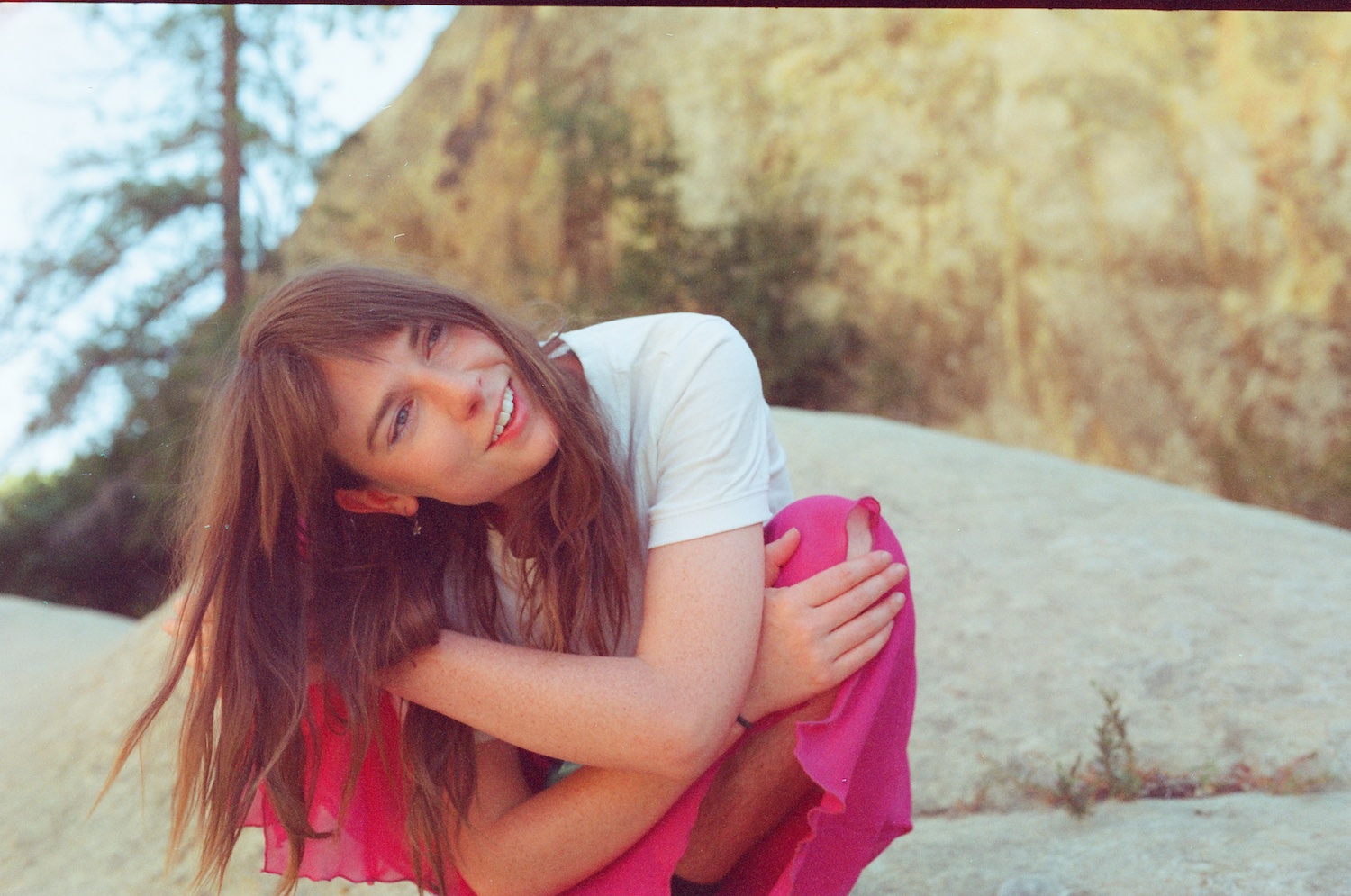
Light, Dark, Light Again is by no means a “light” album, but it wears its weight well.
McMahon lovingly calls it a record of “cosmic crying affirmations,” and we’ll be happily diving headfirst into her deep emotional tundra for months and years to come. Putting her faith in vulnerability, Angie McMahon has made a timeless record of self-examination, self-acceptance, and self-love that ultimately explores what it means to be human: Fractured, yet whole; fragile, yet strong. Ever-changing, yet somehow still the same.
If this is to be McMahon’s masterpiece – her greatest contribution to culture – then it was well worth whatever profound spiritual purging it took to bring these thirteen breathtaking songs to life.
The process of creating these cinematic musical worlds was a big part of what elevated me out of a dark place.
— —
:: stream/purchase Light, Dark, Light, Again here ::
:: connect with Angie McMahon here ::
A CONVERSATION WITH ANGIE MCMAHON

Atwood Magazine: For starters, can you share a little about the story behind this record?
Angie McMahon: This record came out of the lowest rock bottom I’ve ever hit. Some of the pillars that were holding up my reality a few years ago fully came down in the last few years, and these songs are kind of all the ideas that I used to push myself uphill, like I’m trying to do spells to ascend out of a hole.
It’s been four very long years since Salt came out. What is your relationship like with your debut album these days? What lessons from making Salt did you take with you into making Light, Dark, Light Again?
Angie McMahon: Big years! I feel far away from that one. I don’t listen to it, not because I don’t like it, but because I want to keep moving through my development as a writer so I don’t really feel called back to it right now. I want to keep growing up. I guess if the art is a tree, Salt is the trunk. I’m happy it’s there, and I’m happy with the way we made it – I was so unsure of myself, and making that record helped me land in my own body.
Salt was such a definitive introduction to who you are as a person and as an artist, and it was also a compilation of all your first songs. How did making Light, Dark, Light Again compare - is it also a sort of song compilation of sorts, or were you trying to adhere to a specific style or theme for this album?
Angie McMahon: This one feels like a compilation too, but over a shorter time period, so I feel closer to these than I did to the Salt songs when they came out. By the time Salt came out, some of those songs had been living with me since I was 19, and I didn’t remember who I had been when I wrote them. These ones feel more hard earned, like I remember the person who wrote them, and I’m grateful to her. It’s a more recent skin, maybe the skin I’m still living in. I had to leave some songs off the record which I loved, and which will get a life somewhere else soon, because they didn’t fit into the world of this one. I wrote a lot, and there was some crap to sort through, and the final selection is just the songs that made the most sense as a whole – completed the circle.
What was your vision going into this record? Did that change over the course of recording this?
Angie McMahon: I wanted to be The War on Drugs. It totally changed, because as much as I was listening to them, I was writing the record alone in my house mostly – I didn’t have a band to jam with in lockdowns, I didn’t have a lot of rock and roll energy. I was ultimately consuming a lot of choral music and psychology podcasts, so it took a left turn into cinematic affirmations, because that was what I needed. It’s funny, having the plan to make ‘a second album’ without knowing what life lessons and changes are going to hit you along the way. I’m glad I had a vision, but it was important to release it too. My dream of being The War on Drugs will have to wait until I can play guitar better anyway.
I know the lyrics come from the final track (probably my favorite song by the way), but what drew you to naming the album “Light, Dark, Light Again”?
Angie McMahon: I resisted the idea, it was like plan B or C. I had decided that all my albums would have a single word title, like Salt, and that would be my cool dramatic thing. But my friends and team knew better, they helped me see that the story of the record is in that phrase. I was worried it was too long for a title. I love it now. I have been embracing the idea that all life’s chapters of death and rebirth, the plunging downhill and the climb back uphill, they’re inevitable and temporary and crucial to growth. I want to accept it all, so this record is meant to be a reminder of that. It’s like one of the only truths that I know – that everything ends and begins again.

I’d love to learn more about the journey of empowerment and liberation that you embark on in this album. Were these songs the spiritual catalyst for you, or are they more so a reflection of things you were already going through at the time? I suppose this is a sort of chicken-or-egg question.
Angie McMahon: It was more like the latter, but also both – the songs were a result of the place I was in, trying to leave behind, trying to get to. They kind of became a way to will myself back to life, especially the mantra moments, the self-compassion stuff – it was a way to bring those parts of myself forward and physically store them. And now that I listen to them and look back, I think the process of creating these cinematic musical worlds was a big part of what elevated me out of a dark place. I was realising that you can make a song out of nothing, and you can sing something over and over, and in doing that you’re choosing to make it true and real and live inside it and then beyond it.
Without my sounding too naive, what is it about this notion of self-love and acceptance that resonated so much for you? Why were these so important to write about, and to enshrine in song?
Angie McMahon: A couple things I was reading and learning were really bringing it home for me. One psychologist told me that our brain is in an automatic state of negativity a huge percentage of the time (to keep us safe for comfortable) and that we have no idea how often we are subconsciously speaking negatively to ourselves, so I started trying to tune into my self talk and found it overwhelmingly negative. I had some more light shed on that in studying ADHD, which I was being diagnosed with at the time, and finding the research that suggests self-compassion practice and meditations as one of the most valuable tools.
I was also reading a book by Buddhist nun Pema Chodron, which was teaching me about the importance of self-compassion to be able to move through suffering, accept our humanness and find peace in how we perceive ourselves. I was basically coming to terms with the fact that I beat myself up really hard internally, I had no idea I was doing it, and I had no idea how much it would change my life to change that habit. It’s also really hard to retrain your subconscious patterns, you can’t just do it by deciding to, otherwise addiction wouldn’t be a thing! So, alongside other things, I started using songs.
That album opens with “Saturn Returning,” which you also released as the lead single earlier this year. How do you feel this song sets the scene for the record to come, and what makes it a worthy opener?
Angie McMahon: I was going in a different direction for the first single, and then it just felt wrong to not start here. I think I found my way with this song. It feels like the best introduction to the theme, and to the intention that I had landed on for the rest of the record – to go towards the unknown, let it distort you, let whatever is coming next in your life burst you open. Cinematically it felt really good – I was afraid of making the visuals to go along with the record, but this song felt like the most exciting way into that, alongside Bridgette who held my hand and the camera and made a video that I will always love.
I was basically coming to terms with the fact that I beat myself up really hard internally, I had no idea I was doing it, and I had no idea how much it would change my life to change that habit.
“I was squeezing your self esteem like dirt coming out of your skin; while you were loving me, you were suffering,” you sing on “Fish.” “I sometimes felt stronger with someone at home who was sending me all this desire. But I started to feel like a fish in the ocean who knows that it's caught on a wire.” This song is so vulnerable and visceral; can you share more about where you were when you wrote it?
Angie McMahon: This is one of the break-up songs on the record, it came early in the album writing process, not long after Salt came out. I was at home in lockdown, I hadn’t written a song in ages, and between spells I probably had matured a little bit. It felt important to write a break-up song that was looking at my own behaviour, not blaming someone else – I probably hadn’t done that very deeply before, and it paved the way for the rest of the self reflection stuff. It was fun to take that old idea of a partner being your “fish in the sea” and run the metaphor as far as I could take it. I wanted the whole song to sound like you’re underwater. I produced a demo in my bedroom that felt so good and big and I was suddenly confident that I could make a record again (even though it took a couple more years to get there).
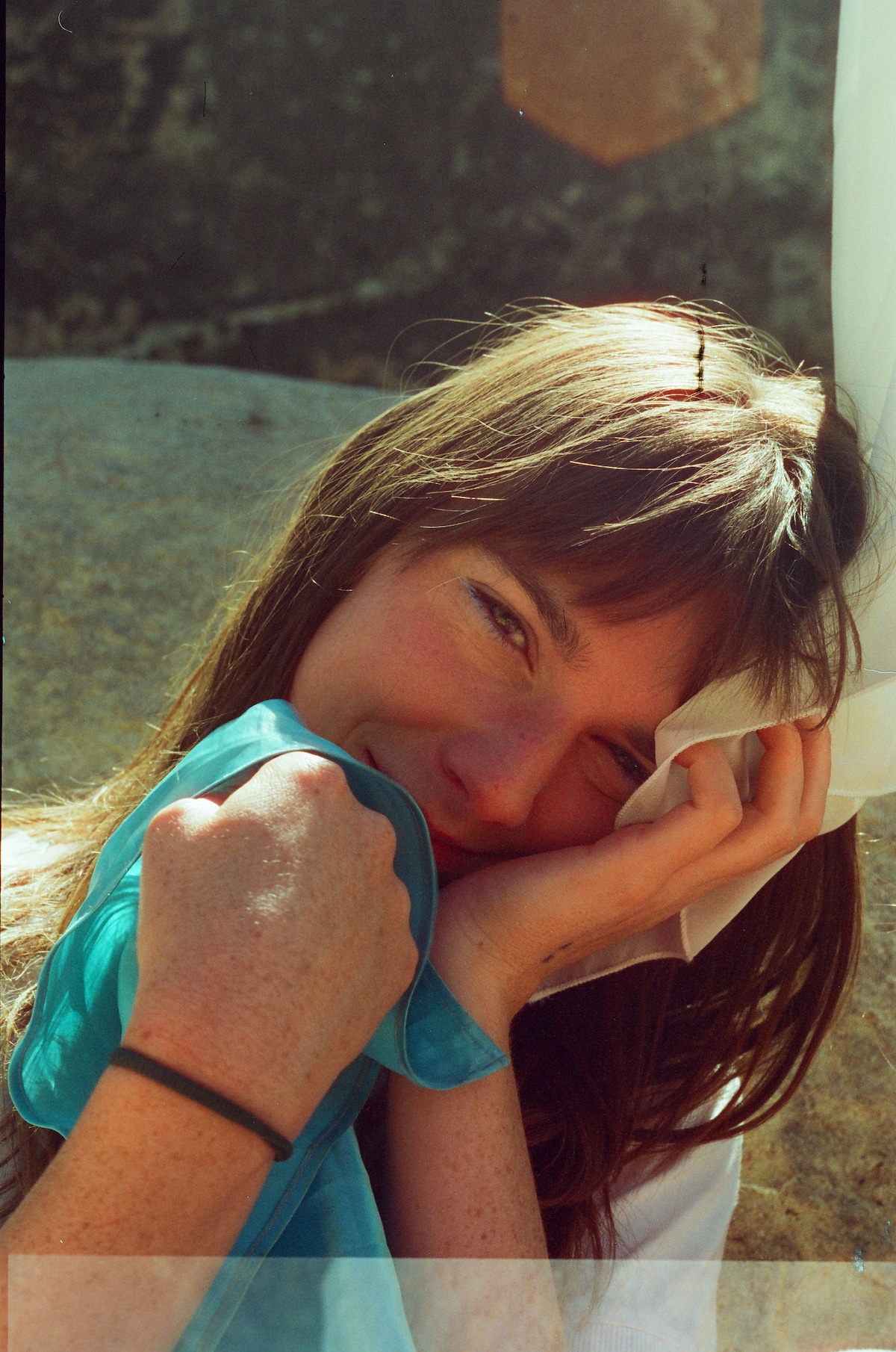
I have to say, this is one album where I think I love the deep cuts (“Fish,” “Serotonin”) as much as the singles (“Exploding,” “Fireball Whiskey,” “Letting Go”). What was the process of choosing singles like this time around, and how did you go about devising this track order? It feels so carefully crafted.
Angie McMahon: I actually found this really hard! I felt like most of the songs could have been a single for different reasons. In the end, the singles were chosen by finding the average favourites among the team behind the scenes, but I could have gone anyway. Fish always felt like a big contender for me. I didn’t think “Divine Fault Line” should be one, but now that the record is out, I’ve heard that’s the favourite for a lot of people. It was nice to have the first single be the opening track of the record, and the final single be the closing track – that feels so neat.
I mentioned earlier that “Making It Through” is my personal favorite song on this album. The chorus is so cathartic - it feels like the cleanse this whole album has been leading up toward: “I froze like the whole world was ending, exposed hole in my own panic pretending. I know now that we needed that ending, you were never gonna stay, just making it through is okay.” What is this song about, for you, and what is its significance as the album’s grand finale?
Angie McMahon: Ah thanks! It’s also one of my favourites. There’s a big painful mountain that I was climbing in my personal life which I didn’t really touch in a narrative way for most of the album, but this one is as close as I got. It is kind of where my pain was living, so writing this one was a big cathartic clarity moment. The thing I was going through came with these huge, panicky waves that I didn’t know how to handle, so I just had to ride them out – that’s what the choruses feel like. And after riding the wave, I arrived at this euphoric place of relief and gratitude and that’s what the end of the song feels like.
I think it’s the same idea that comes up a lot in the record, that going towards what you’re afraid of, and acknowledging what you’ve failed at, is so hard and big and important. And you can fuck up while you do that, and you can lose people and be messy, and the most important thing is just going forward, and being gentle with yourself. If you can surrender, that’s the hardest bit, and you’ll be okay. That’s some of the stuff I’ve been trying to learn, anyway!!
Do you have any definitive favorites or personal highlights off this record?
Angie McMahon: Yeah – you actually have kind of named them already! “Fish” and “Making It Through” have been my favourites throughout. I do also love “Black Eye” and “Music’s Coming In” for their intimacy, and “Divine Fault Line” and “Exploding” for their energy.
As a lyrically forward artist - one of the best I know - do you have any favorite lyrics in these songs?
Angie McMahon: Mitch that’s so kind, thanks. I think I like the lyrics that feel like the scariest and most true moments of self reflection – they probably live throughout “Making It Through” and “Fish.” But I also like the “hot water runs out” part of “Fireball Whiskey,” and the bridge of “Saturn” – “crying to the heavens, find me in the present” – that feels like a prayer to sing. And the weird line in “Serotonin,” “my clothes got too small for my emotions, I had to change” – that just feels funny.
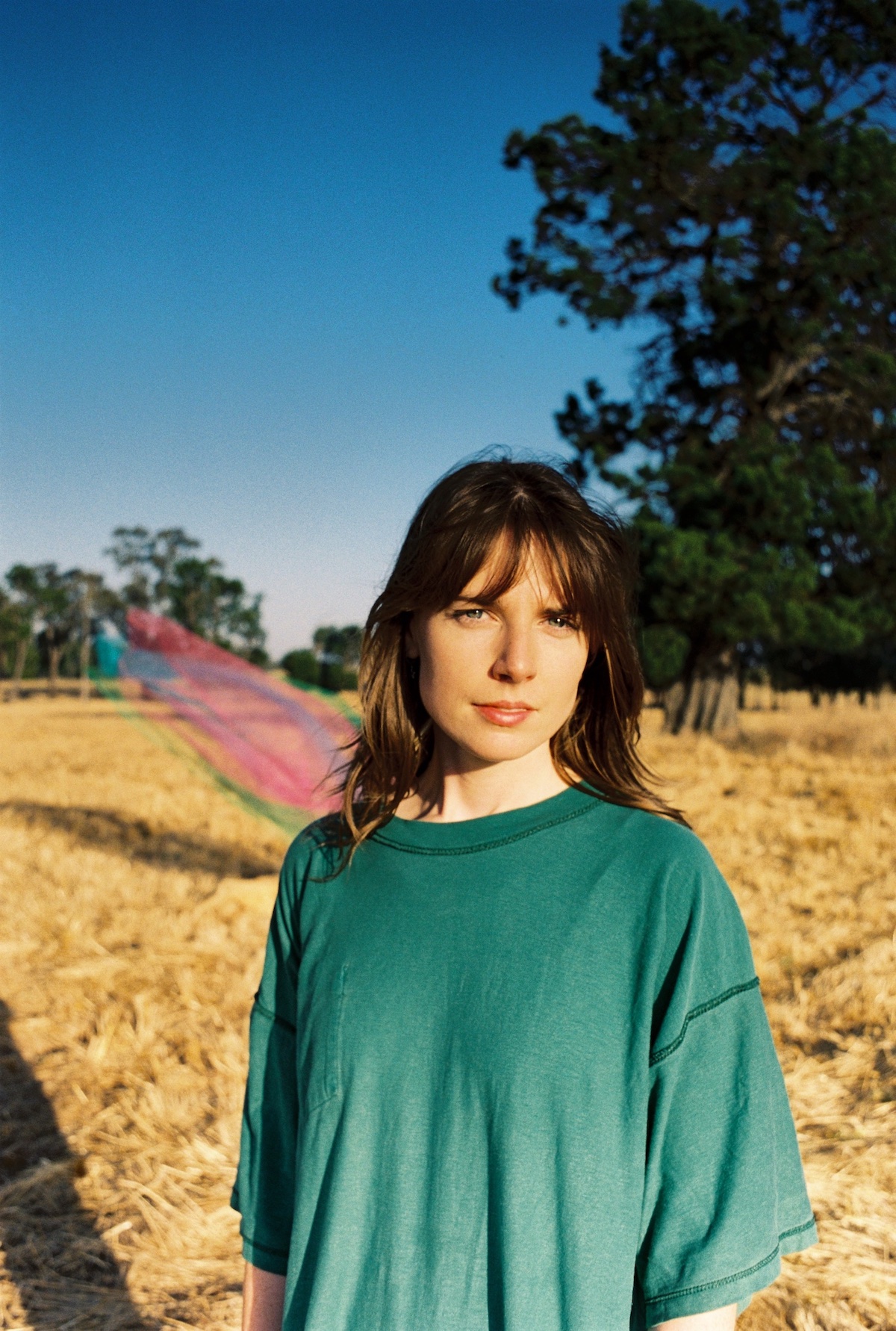
What do you hope listeners take away from Light, Dark, Light Again? What did you take away from creating it and now putting it out?
Angie McMahon: I hope it helps people process whatever shit they’re going through in their life when they hear it. It was cathartic to write through pain and confusion, and ultimately really healing. I didn’t know if it was good – in fact I was pretty sure it was a crap album. That is just my honest truth and speaks to the negative self talk, but I don’t feel that now – I feel proud of it and grateful for the people who have received it and told me it’s helped them. I have a lot of anxiety and fear in my body, and maybe we all do, and maybe this can be something that helps navigate that for some people. Maybe it can bring some hope or clarity or just do some good somewhere! It has been doing good for me, so already I think it is enough.
Lastly, who are you listening to these days that you’d recommend to our readers?
Angie McMahon: I love this question! Some songwriters who have my heart and who are making some of my favourite music – Annie Rose Maloney (keep your eyes on her), Ruby Gill, Hannah McKittrick, Hannah Cameron, Mimi Gilbert. There are actually a lot, a big community of wonderful and inspiring people.
— —
:: stream/purchase Light, Dark, Light, Again here ::
:: connect with Angie McMahon here ::
— — — —

Connect to Angie McMahon on
Facebook, Twitter, TikTok, Instagram
Discover new music on Atwood Magazine
© Taylor Ranston
:: Stream Angie McMahon ::

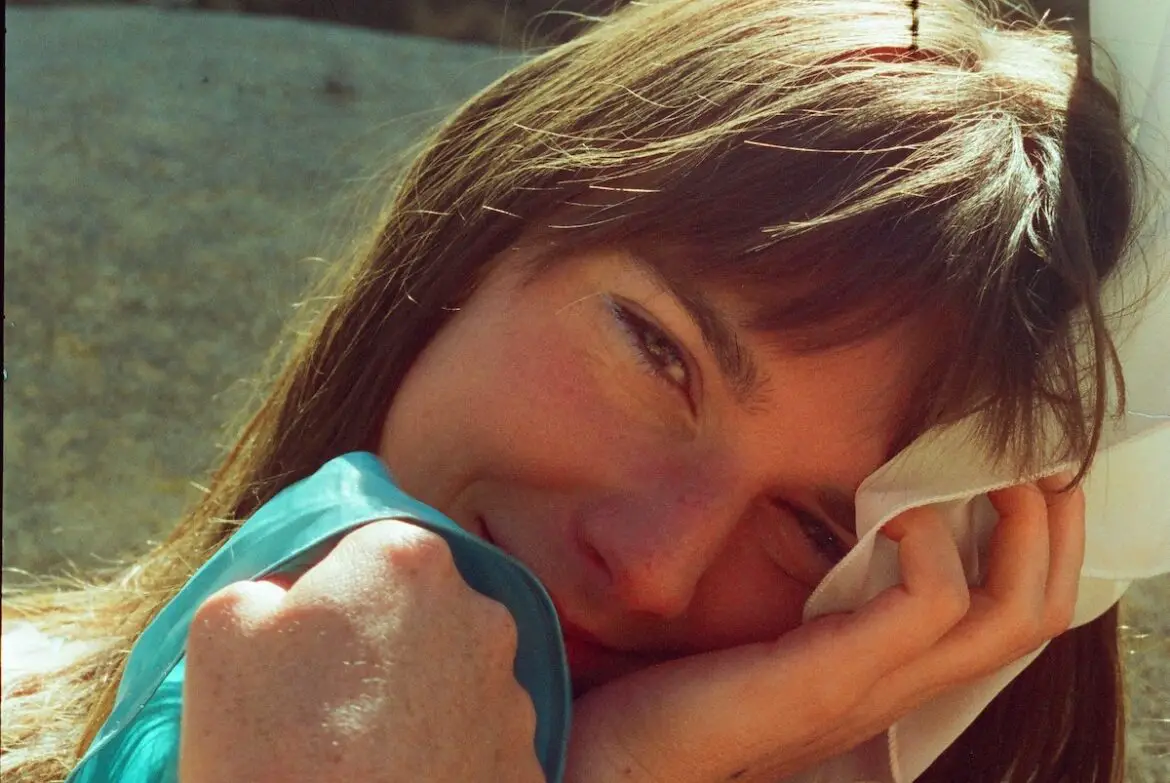
 © Taylor Ranston
© Taylor Ranston